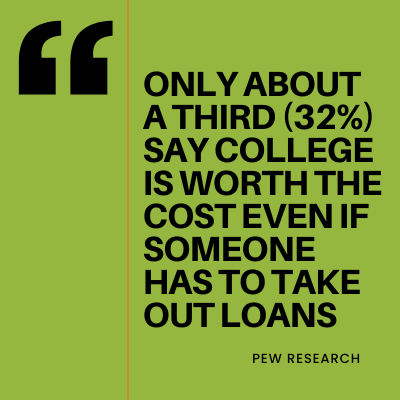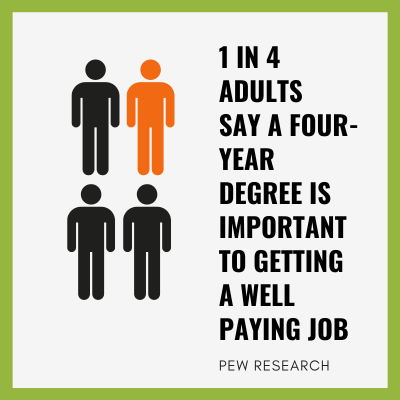The World Economic Forum released their latest report The Future of Jobs with some fascinating findings. In this post we tackle the section related to the most important skills needed in 2023.
Here’s an excerpt from the executive summary:
“Analytical thinking and creative thinking remain the most important skills for workers in 2023. Analytical thinking is considered a core skill by more companies than any other skill and constitutes, on average, 9% of the core skills reported by companies. Creative thinking, another cognitive skill, ranks second, ahead of three self-efficacy skills – resilience, flexibility and agility; motivation and self-awareness; and curiosity and lifelong learning – in recognition of the importance of workers ability to adapt to disrupted workplaces. Dependability and attention to detail, ranks sixth, behind technological literacy. The core skills top 10 is completed by two attitudes relating to working with others – empathy and active listening and leadership and social influence – as well as quality control.”
Download the full report, or visit the World Economic Forum website for more information.
Future of Jobs Report – Critical and Analytical Thinking Remain the Most Important
Critical thinking and analytical thinking are highly valued employee skills for several reasons:
- Problem Solving: Critical and analytical thinking enable employees to effectively identify, analyze, and solve complex problems. These skills involve the ability to break down problems into their constituent parts, evaluate different perspectives and information, and develop innovative solutions. Employees who can think critically and analytically are invaluable in tackling challenges and finding efficient and effective solutions.
- Decision Making: In today’s fast-paced and information-rich work environments, decision making is a critical aspect of every role. Critical thinking and analytical thinking skills help employees assess multiple options, evaluate the pros and cons, and make informed decisions based on available evidence. This prevents hasty or biased decision making, leading to more rational and successful outcomes.
- Strategic Planning: Organizations rely on employees who can think critically and analytically to develop and execute strategic plans. These skills enable employees to analyze market trends, identify opportunities and risks, and make informed decisions that align with organizational goals. By thinking critically and analytically, employees can anticipate potential challenges and develop proactive strategies to navigate them.
- Effective Communication: Critical and analytical thinking skills contribute to effective communication in the workplace. Employees who can analyze and interpret information accurately can convey their thoughts and ideas clearly and concisely. They can also ask probing questions, challenge assumptions, and engage in meaningful discussions, leading to better collaboration and problem solving within teams.
- Innovation and Creativity: Critical thinking and analytical thinking foster innovation and creativity in the workplace. Employees who possess these skills can think outside the box, generate new ideas, and approach problems from different angles. By critically evaluating existing processes and procedures, they can identify opportunities for improvement and propose innovative solutions that drive organizational growth and competitiveness.
- Adaptability and Resilience: In a rapidly changing business landscape, adaptability and resilience are crucial qualities for employees. Critical and analytical thinking skills enable individuals to quickly assess new situations, identify patterns, and adjust their approach accordingly. These skills facilitate agile decision making and problem solving, allowing employees to navigate uncertainty and change more effectively.
- Continuous Learning and Improvement: Critical thinking and analytical thinking go hand in hand with a growth mindset. Employees who possess these skills are more inclined to seek out new knowledge, evaluate their own assumptions and biases, and actively pursue ongoing learning and development. This commitment to continuous improvement enhances their professional growth and helps them stay ahead in an evolving work environment.
What we love the most about this section is that critical and analytical skills can be honed, developed and continually improved.
To read more about the skills need for the Future of Work, Download the full report now!
Or if you are ready to learn more about Jobspeaker and how we can help ensure you hire employees with the right skills, schedule a demo today.


